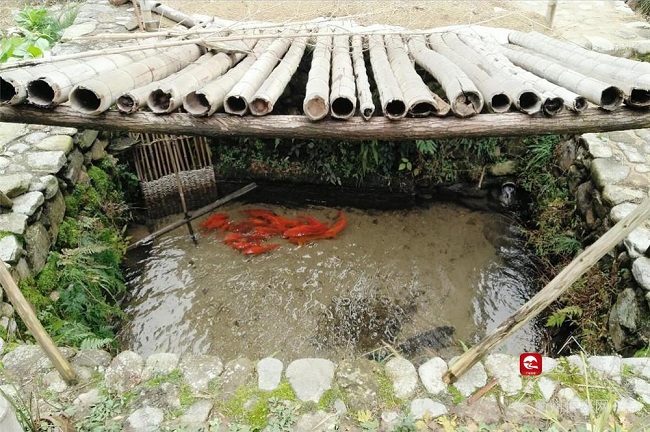Fish farming system in Quzhou recognized as Chinese agricultural heritage item
A fish farming system making use of mountain spring water in Kaihua, a county in Quzhou, East China's Zhejiang province, was recently added to China's list of agricultural heritage items by the Ministry of Agriculture and Rural Affairs, local media reported on March 30.
The protection zone for the fish farming system in the county covers an area of 884.9 square kilometers and includes six towns, 86 villages, and 190,000 people.
It also includes the Qianjiangyuan National Forest Park, which serves as an environmental buffer zone for not only Zhejiang, but all of East China.
Kaihua's fish farming system is made up of three parts: a spring water system offering high-quality running water, an artificial water system composed of drainage channels and ponds, and an agricultural production system focusing on grass planting and fish farming.
Kaihua natives have developed this unique fish farming system, which integrates mountainous regions, rivers, ponds and villages, over the course of thousands of years.
Qingshui fish are the most popular local specialty. They can only survive in extremely high-quality water and are known for their delicious taste.
In 2019, the total output of 2,000 tons of Qingshui fish in Kaihua valued at 200 million yuan ($28.2 million), a year-on-year increase of 11.1 percent. The county's Qingshui fish brand was even included among the top 50 agricultural brands in Zhejiang.

A fish farming system making use of mountain spring water in Kaihua, a county in Quzhou, East China's Zhejiang province, is added to China's list of agricultural heritage items. [Photo/qz123.com]

 Print
Print Mail
Mail
 20 Cultural Symbols
20 Cultural Symbols Why Zhejiang
Why Zhejiang Experiencing high-tech products at WIC
Experiencing high-tech products at WIC Zhejiang Release
Zhejiang Release Zhejiang News
Zhejiang News